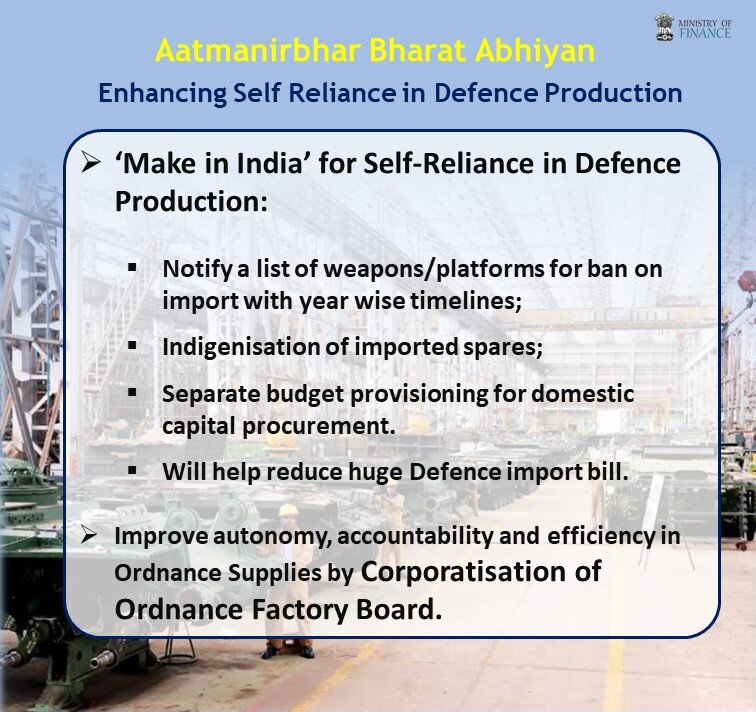Internal Security
Urgency of Defence Reforms
This editorial is based on “The urgency of defence reforms” which was published in The Hindustan Times on 05/07/2020. It talks about the need for defence reform in India.
Given the key geostrategic challenges, emanating from the threat of two-front war (against China and Pakistan combinedly), India faces the complex threats and challenges spanning the full spectrum of conflict from nuclear to sub-conventional.
However, the Indian defence preparedness is facing challenges such as the absence of a clearly enunciated National Security Strategy (NSS), poor civil-military relations, the failure in modernisation on a long-term basis and sub-optimal inter-service prioritisation etc.
Recent military clashes between India and China in Galwan valley has made the government take steps to secure the sovereignty of India and maintain peace and tranquillity at the borders, India needs to carry out much-needed defence reforms.
Associated Challenges
Lack of National Security Strategy (NSS): Indian defence planning has been retrospective instead of proactive.
- This is because the Cabinet Committee on Security (CCS) meets as often as necessary to review any emerging situations.
- However, the National Security Council (NSC), whose charter involves the evolution of an integrated NSS and the provision of guidance for long-term defence planning, seldom meets.
- Further, the only time a serious security review was undertaken in the recent past was after the Kargil Conflict of 1999.
Delayed Defence Acquisition: Despite the much-trumpeted reform in procurement Defence Reforms process, the acquisition of new weapons and equipment by the armed forces is still mired in bureaucratic red tape.
- Due to this, annual defence budgets remain unutilised and continue to lapse back to the Ministry of Finance (MoF) at the end of the financial year.
Issue with Defence Research and Development: There is a dichotomy between the time-consuming quest for technological self-reliance and the desire of the services to import arms and equipment based on immediate operational exigencies.
- The disconnect in the interface between R&D, production agencies and users remains unresolved.
- Thus, ‘make’ or ‘buy’ decisions are still contentious and DRDO projects continue to be delayed with consequent cost overruns.
Difficulty in Attracting Foreign Investments: Foreign Investments (FDI) remains crucial for infusion of cutting edge technology. However, there are several issues which hamper the inflow of defence-related FDI in India.
- For example, issues related to land acquisition, labour laws, regulatory cholesterol, the conflict between the Ministry of Defence and the Department for Promotion of Industry and Internal Trade) regarding computation methodology of FDI.
Way Forward
Need For A Comprehensive NSS: The first and foremost requirement is for the government to formulate a comprehensive NSS, inclusive of internal security so that all the stakeholders are aware of what is expected of them.
- Along with it, there is a requirement to establish a permanent National Security Commission – mandated by an act of parliament – to oversee the development of military and non-military capacities for national security.
Tri-Service Command: Increasing technological disruptions has given birth to Hybrid warfare.
- In this context, setting up of tri-service command is a step in the right direction and more commands need to be established.
- Also, the establishment of the post of Chief of Defence Staff will complement the tri-service command.
Implement Naresh Chandra Committee Recommendation: The government must accord the highest priority to the implementation of the recommendations of the Naresh Chandra Committee.
- Implementation of these recommendations will help the country’s armed forces to become well prepared to meet future threats and challenges and contribute positively to security in South Asia and the Indian Ocean region alongside India’s strategic partners.
Defence Reforms Under Atma-Nirbhar Abhiyan: Government has done well by announcing a slew of reforms under Atma-Nirbhar Abhiyan, these help in attracting FDI, streamlining time-bound defence procurement, and boosting domestic participation in the defence sector.
- These reforms should be implemented as soon as possible.
Defence Reforms Under Atma-Nirbhar Abhiyan
- Raising the sectoral cap of foreign direct investment (FDI) (automatic approval) from the existing 49% to 74%.
- A negative list for the import of defence equipment in India.
- A separate capital budget for indigenous weapons procurement.
- Corporatisation of the Ordnance Factory Board (OFB), and
- Reforming defence procurement.
Conclusion
India with the second largest armed forces and with the third-largest defence budget in the world aims to achieve self-reliance in defence production.
When the draft Defence Procurement Policy 2020 (DPP) was unveiled, it was a push forward for higher indigenous content and encouraged initiatives for local material and software as a part of Make in India.
|
Drishti Mains Question “With the threat of two-front war becoming more and more imminent, India cannot afford to delay much-needed reforms in the defence sector”. Discuss. |
This editorial is based on “Lost opportunity: On India losing Chabahar project” which was published on July 15th, 2020. Now watch this on our Youtube channel.





